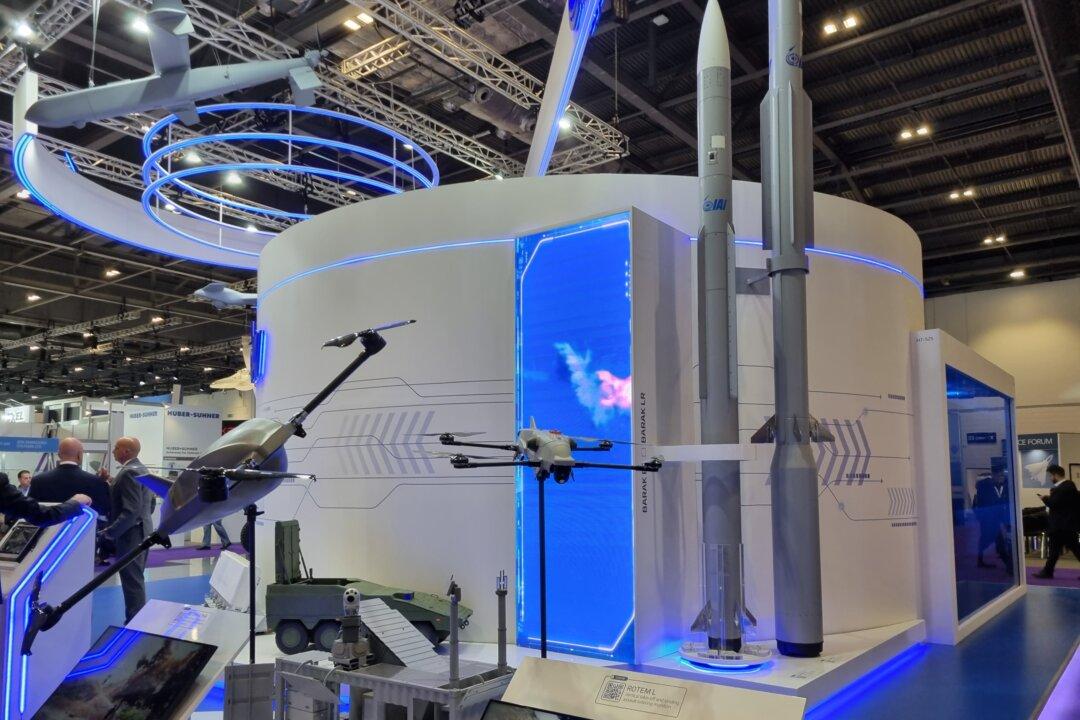LONDON—An Israeli drone manufacturer has said Britain and other Western governments are reluctant to use autonomous weapons—powered by artificial intelligence (AI)—even though “the technology is there.”
Uri Shenfeld, chief marketing officer with Israel Aerospace Industries (IAI), was speaking at the giant DSEI defence and security equipment exhibition at the ExCel in London, which concluded on Friday.





